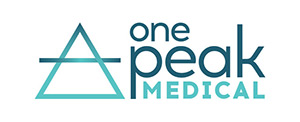Nisha’s Path to Health After COVID and Breast Implant Illness
Medical providers have a vast knowledge of the human body and ailments that can derail health. Despite their immense knowledge, some illnesses are more mysterious, especially since COVID rocked our world in 2020. When OnePeak Medical founder Nisha Jackson, Ph.D. MS, NP, HHP, was not improving after COVID-19, she began digging deeper.
Thanks to COVID, many illnesses are coming out of the woodwork. One such illness that is on the rise is Breast Implant Illness or BII. In this blog, you will learn about Nisha’s experience with BII. You will also learn the symptoms of the illness and what you can do to regain control of your health if you have it.
Like so many, Nisha experienced long-term symptoms that wouldn’t go away after contracting COVID-19. Nisha was severely fatigued and needed to take multiple naps during the day. Her hair was falling out, her skin was dry, and she had chronic pain throughout her body. As a functional medicine provider, Nisha has access to leading knowledge on treating long-COVID. But she knew something else was amiss when her symptoms didn’t fully resolve after undergoing an intensive treatment plan. OnePeak Medical provider Rebecca Meek, WHNP-BC, suggested breast implant illness, and it was like a light went on after being in a very dark place for Nisha.
A healthy body can usually suppress illnesses that made us sick in the past. But one common symptom of long-COVID that we’re seeing is the reactivation of old diseases. When the immune system is compromised, the energy the body uses to keep other illnesses at bay is exhausted. The inability to suppress these illnesses often means they come back with a vengeance. But it can also mean that symptoms usually tolerable become intolerable. Breast Implant Illness is one such illness.
What is Breast Implant Illness?
According to Cleveland Clinic, BII refers to a wide range of symptoms in people with breast implants. There are currently 50 reported symptoms associated with BII, which can occur immediately after implant or years later – as was the case for Nisha. It is unclear why BII happens. However, it appears to be an autoimmune or inflammatory reaction to parts of the implant. BII can occur in both silicone and saline-filled implants. Not everyone with breast implants gets BII.
What are the symptoms associated with Breast Implant Illness?
Some of the most commonly reported symptoms of BII include:
- Joint pain
- Muscle pain
- Muscle weakness
- Anxiety and depression
- Fatigue
- Brain fog
- Memory loss
- Poor concentration
- Dry eyes
- Hair loss
- Skin rashes
How is BII Diagnosed?
BII is diagnosed by ruling out other conditions and diseases, such as Lyme disease. In Nisha’s case, a complete medical history and extensive lab tests were necessary to hone in on the root cause of her suffering.
How is BII Treated?
Health should always be the top priority. Regardless of whether or not the implants are in good condition, if you have BII, they should be removed. Most people experience symptom relief shortly after removal. However, it can take longer, so they should be left out for a year to gauge improvement. If BII is the cause of illness, experts recommend not putting in new implants, as symptoms will return. Nisha noticed significant improvement within 24 hours of getting her implants removed.
How to protect yourself against BII
People with longstanding health problems who get sick frequently should be cautious about getting implants. And if you already have implants and chronic symptoms, consider getting them removed. With BII, the body is fighting against implants. Therefore, the path to feeling better requires removal.
If you have breast implants and are struggling with symptoms that aren’t improving, Nisha wants to help. Starting in January, she will be offering televisit appointments. Your health truly is your wealth. Invest the time to explore how to start feeling better. Appointment availability will be open soon. Email info@onepeakmedical.com if you are interested in an appointment.

